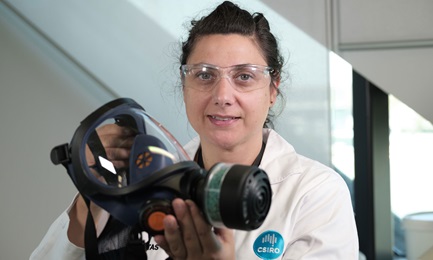CANBERRA, Aug. 30 (Xinhua) -- Top Australian scientists have joined forces to fight the emerging risk of infectious diseases that can be spread to humans from animals and insects.

(File photo: csiro.au)
The Commonwealth Scientific and Industrial Research Organisation (CSIRO), Australia's national science agency, on Friday announced it will work with James Cook University (JCU) on increased surveillance of wildlife, better monitoring of diseases and more extensive field-based sampling.
Previous studies have found that northern Australia acts as a gateway for infectious diseases found in southeast Asia because of its proximity to the region.
The CSIRO also warned that Australia is increasingly susceptible to such diseases because of its growing trade, globalization and urbanization.
"This collaboration will create an integrated northern and southern research capability that will be pivotal in helping to strengthen Australia's preparedness and response to emerging infectious diseases," Karen Andrews, Australia's Minister for Industry, Science and Technology, said in a media release on Friday.
It is estimated that 75 percent of infectious diseases in human originate in animals, according to the research.
Researchers from the two organizations will share knowledge and training capabilities to respond to the threat.
"The global annual incidence of zoonotic infectious disease outbreaks has increased by more than 300 percent since the 1980s," Maxine Whittaker, Dean of the College of Public Health, Medicinal and Veterinary Sciences at JCU, said.
"This worrying trend is now seen as a global and national health security risk, with recent global outbreaks include Ebola virus disease, highly pathogenic avian influenza (bird flu), and Severe Acute Respiratory syndrome (SARS)."


